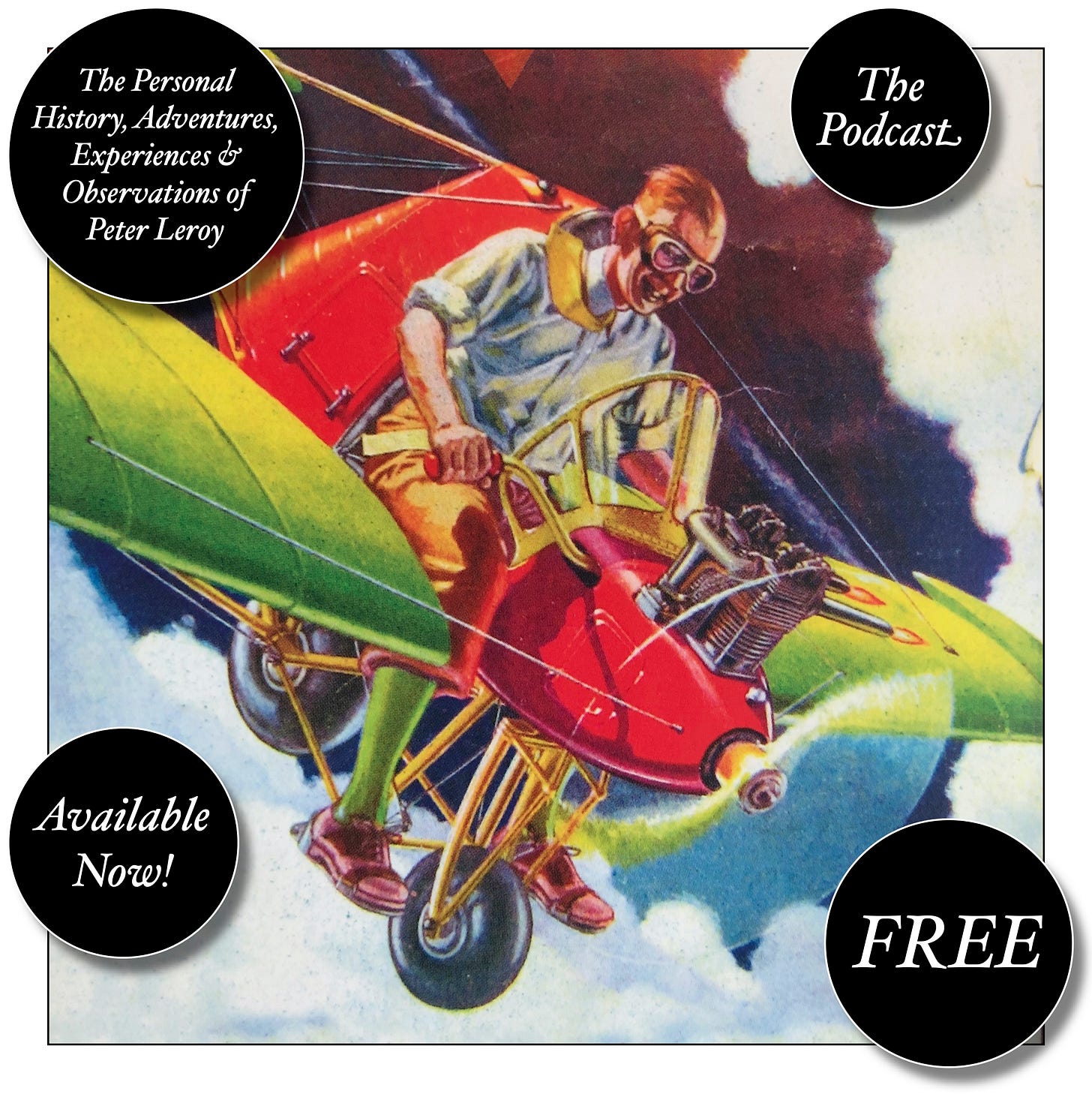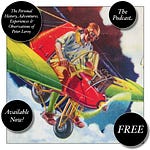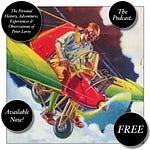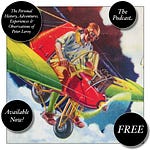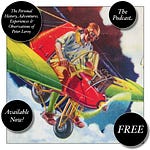19
I BEGAN SPENDING more and more time at the Glynns’, and my time with them began to take on the rhythms of a welcome and happy routine. Every Saturday morning, I would walk from my home in Babbington Heights to the “five-way light” where five routes to different sections of Babbington met or diverged, depending on one’s point of view. I would cross that wide and dangerous intersection, walk more slowly along the narrow and intriguing roads that led to the shell of the Nevsky mansion, stand there in silent contemplation for a while, then go on to the Glynns’ house and knock at the door. After a while I realized that the knock had become an unnecessary ritual, and I wouldn’t wait for the knock to be answered, but would open the door immediately after knocking and call out, “It’s Peter,” and after another while I stopped waiting for them to respond with “Come in, Peter,” and just walked in after announcing myself.
I felt quite at home.
I’d walk into the echoing entrance hall, across the slate floor, past the huge fireplace, and toward the back of the house, where, on the right, there was the kitchen, with its round table and set of chairs in an extension that reached into the courtyard, like a conservatory. That area of the house faced south and caught the sun so well that the Glynns kept the windows open on most fall days, and even, occasionally, in the winter. In my memory of those Saturday mornings the sun is always shining. Margot and Martha, careless and leggy, with the coltish awkwardness of girls at that stage of gracelessness that I suppose marks the end of childhood, a stage attractive for its artlessness and freedom from self-consciousness, are sitting there at the table. That’s not quite accurate. They didn’t sit on their chairs, really. They set themselves onto their chairs and then immediately found it impossible to keep all the parts of themselves in the customary places. A leg would fling itself outward or bend itself under the other leg, and then the whole girl would have to be rearranged, the chair shifted, and then the girl’s nates would find that they couldn’t fit themselves into the two scoops in the wooden seat, and that meant more shifting, and the girl might get up and give the chair a shake and set it down at a different angle and try again. The inflexible chair and the flexible girl were engaged in a struggle, with the chair bent on teaching her the necessity of compromise, but the girl had a will and it was a will to win, to dominate, and she meant to get the best of that chair, and while she was working to do it she was a treat to watch, and watching was my part in the procedure.
Whenever I recall Rosetta now, I see her at that kitchen table, but this is not because I associate her with cooking. The kitchen table was where she did her work, but cooking wasn’t part of it. She was an indifferent cook, though she was an enthusiastic eater. In her house, everyone else cooked, including, after a while, me. Every meal was an improvisational performance, and she was the audience for it, the ideal audience, since she seemed really to marvel at the transformations food could undergo in the presence of heat. Scrambled eggs were frequently my contribution to meals at the Glynns’, since they were very nearly the only thing that I knew how to cook. They were a miracle to her. If I held a plate of scrambled eggs in front of her, her eyes would grow wide, and she would smile while she ate them, as if the wonder of their being simultaneously lumpy, yellow, hot, and edible induced too great a pleasure to hide. If I had added a little onion, she would sigh, and if I added bits of green pepper, she would giggle.
Andy was fearless in the kitchen. He would start the preparation of a meal with no preconceived ideas about the result whatsoever. He’d seek his inspiration in the larder and the fridge, which Rosetta kept well stocked. She was fond of shopping and admired the shapes of vegetables, the textures of meat, the packaging of prepared foods and condiments. Andy seemed to create every recipe as he cooked, not just as if he had never cooked what he was making, but as if no one had ever cooked anything before. There were many failures, but every meal had the spice of shared adventure, and, with the possible exception of the meals I had in the home of my schoolmate Marvin Jones, I had never eaten in such a lively and happy atmosphere before.
On one of the earliest of those Saturday mornings, when I came into the kitchen, Rosetta was sitting at the table while Andy rattled some pans on the stove. In front of her was a pile of snippets of paper. She was playing with them. She would take one from the pile, read it, and place it somewhere else on the table, where other chosen slips lay in loose array. I assumed that she must be composing a poem, because everyone in Babbington knew she was a poet. I said as much.
She shook her head and smiled an enigmatic smile. “No, no,” she said. “I’m not working on poems. You couldn’t say that I’m working on poems. No, no, definitely not.” Then a look of doubt crossed her face. She looked at the bits of paper on the table. She raised an eyebrow, as if she had surprised herself with some unexpected discovery about the way I might characterize her work. “Or could you?” she asked herself. She regarded her work as if she’d never seen it before. She tilted her head this way and that, in the manner of a cat watching a beetle. “No, no, no,” she said again after a while, “definitely not.” Then she added, “You can’t make big money writing poems, you know,” thereby destroying an illusion of mine, induced by a matchbook advertisement from the Past Masters Correspondence School, the one that depicted a sunset under the words “Versify Me!” The challenge inside the matchbook cover began with the words “You can make big money writing poems if you’ve got what it takes,” and until that moment I had felt fairly certain that I probably did and therefore could.
[to be continued]
Have you missed an episode or two or several?
You can begin reading at the beginning or you can catch up by visiting the archive or consulting the index to the Topical Guide. The Substack serialization of Little Follies begins here; Herb ’n’ Lorna begins here; Reservations Recommended begins here; Where Do You Stop? begins here; What a Piece of Work I Am begins here; At Home with the Glynns begins here.
You can listen to the episodes on the Personal History podcast. Begin at the beginning or scroll through the episodes to find what you’ve missed. The Substack podcast reading of Little Follies begins here; Herb ’n’ Lorna begins here; Reservations Recommended begins here; Where Do You Stop? begins here; What a Piece of Work I Am begins here; At Home with the Glynns begins here.
You can listen to “My Mother Takes a Tumble” and “Do Clams Bite?” complete and uninterrupted as audiobooks through YouTube.
You can ensure that you never miss a future issue by getting a free subscription. (You can help support the work by choosing a paid subscription instead.)
At Apple Books you can download free eBooks of Little Follies, Herb ’n’ Lorna, Reservations Recommended, and Where Do You Stop? and What a Piece of Work I Am.
You’ll find overviews of the entire work in An Introduction to The Personal History, Adventures, Experiences & Observations of Peter Leroy (a pdf document), The Origin Story (here on substack), Between the Lines (a video, here on Substack), and at Encyclopedia.com.



